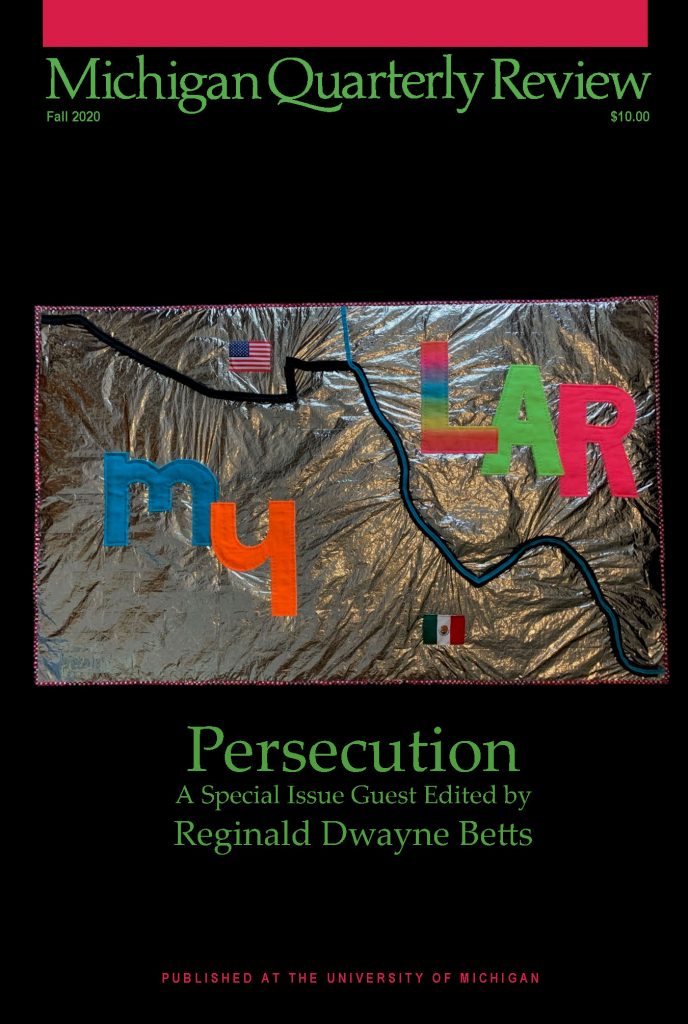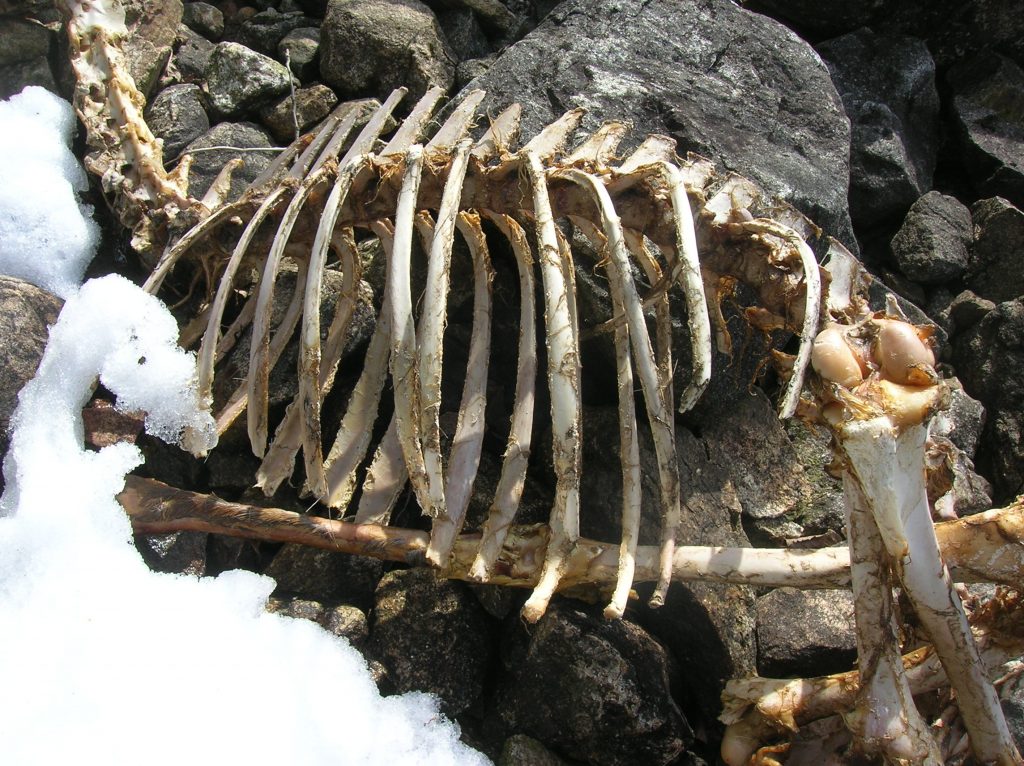To read Charles Cantalupo’s full author note on “After My Honeymoon,” click here.
After My Honeymoon
After our wonderful wedding, for our honeymoon we stayed
At my new in-laws and, when it ended, as was tradition,
I had to live with my mother. In 1971,
Late in December a man from Shieb, whom I didn’t know,
Stopped at our house. I’d been married close to one year, yet he said,
“Please grind some flaxseed for dinner. Guests will be coming tonight.”
I had to wonder. Why come to our house? Why our family,
Newcomers living in Shieb? Why ask me to grind the seeds?
All of it bothered me, still I hurried, grinding him his seeds.
Later I learned he deceived me. There weren’t going to be “guests.”
He was a spy working for the Ethiopian soldiers.
I was in trouble and, one week later, a security
Officer came back, first saying I was “wanted” then adding:
“Come with me to Debre Sina.” We heard several days before
Landmines had killed many soldiers there, yet it also functioned
As a notorious camp for ruthless interrogation.
Therefore, my family followed, and I didn’t go alone.
Soon as we got there, my Debre Sina interrogation
Started with, “Are you an outlaw’s wife?” I answered, “No, I’m not.”
Adding “she’s not” and “she married to a farmer,” my father
Tried intervening but he was treated like he said nothing.
I was the one the interrogator wanted to break down.
“What did you do,” he said. “I did nothing,” was my quick reply.
“Tell us,” he asked again, “Is your husband really a farmer?”
“Yes, he’s a farmer,” I answered, and it led to more questions.
“What if we call him? Would he come? Tell us. Where is he right
now?”
So I responded, “Yes, he would come, and he’s in his village.”
Hearing this shifted the focus of my interrogator,
Asking my father if this was true and telling him to go
Back to my husband and then return while I would still be held.
Hearing “your daughter will stay with us,” my father had to pause.
What should he do? He was worried. Leave his daughter with such
wolves?
Nevertheless, I encouraged him. “Go. Bring back my husband.”
Therefore, my father agreed and left. My mother and uncle
Heard what we said and addressed the soldiers, “Please allow the bride
Who is our daughter to spend the night with us till tomorrow
When he returns. You can make it our responsibility
To get her back in the morning.” My interrogator
Said, “If she stays with us, what do you think will happen to her?”
“Nothing,” my uncle replied. “We’re being parents. Tell us no.
We’ll stay the night.” Yet the man agreed and ordered, “Let her go.”
Meanwhile, my father had walked all night to bring back my husband.
Early next morning, they both came, with my father-in-law, too.
Soon as my family saw him, they said, “Hide from the soldiers.”
So they took only my father and my husband to a room
Holding the villagers who had been already arrested.
When they were taken out by the soldiers as their prisoners,
And they began walking toward the mountain, my mother shouted,
So that the villagers all could hear her. “Please tell them the truth!
She is the wife of a farmer,” and one answered, “No problem.”
One of the soldiers turned to my uncle and said spitefully,
“Now are you happy she spent the night with you?” I also heard
Some other soldier who mocked my husband: “You came all this way
Wanting to save your wife.” I knew then for sure that things were bad.
Off in the distance we saw the soldiers take the prisoners
Up to the summit of Debre Sina. My mother trailed them.
Soldiers were pushing my father toward the edge, when he shouted,
“Do what you want to me, but I’m asking: please set this man free
Since he is innocent, and I’ve promised him he would be safe.”
I heard my father cry, “Mercy! Mercy! Is there no God?” and
I saw the soldiers get angry, and they beat him unconscious.
As he collapsed and I heard my mother screaming, the soldiers
Stuffed his shawl into his mouth and murdered him right on the spot.
After my mother had seen this, she came back to us and said,
“Everyone killed. If we stay, the soldiers also will kill us.”
Following her, we fled back to Shieb immediately.
Leaving my father, my husband, and two witnesses behind –
Four people killed for no reason—we were helpless, and we mourned,
Weeping so hard that it seemed like blood was pouring from our eyes.
Weeping and wailing and mourning. What else was there left to do?
Mourning with us was my husband’s father. He would be dead, too;
Only we warned him the soldiers held my husband and father.
Issuing orders, the Shieb soldiers made us stop crying.
“We killed the outlaws,” the soldiers bragged while making sure their
spies
Watched us in case we denied the soldiers’ stories as mere lies.
Seeing my father-in-law was going back to his village,
I heard him say to my mother to accept “God’s will be done.
There is no other way. Please take care of my daughter-in-law.
If you can hide your tears, she’ll console you. We must pray and live
No matter what happens and survive together. So be brave.”
Blaming myself for the slaughter, I was still weeping in pain,
Knowing that I could do nothing, but his words to us came true.
Marrying my husband’s younger brother was our tradition.
Nevertheless, he got sick and died before we had children.
When I remarried again, it was to Michael Negusse,
My husband’s third youngest brother, and we had seven children,
Three of them daughters, and four were sons. So we were very blessed.
Naming our eldest son Timnit after my father-in-law
Honored his promise. We honored my first husband, Berhane,
Giving our second son his name. This is part of my story.
Not only have I survived, I sing in my people’s language,
Bilen, and write my own lyrics. Also, I write poetry.
Famous at age sixty-five, my name is Adey Rushet Woldedris.
Author’s Note
“After My Honeymoon” has a complex textual history. An oral history turned into prose, the piece recounts the story of Rushet Woldedris as first told by her to Eritrean educator Habtemariam Mehari and published in Gife Gezati Ethiopa ab Ertra (Atrocities by Ethiopian Rulers in Eritrea). First compiled in the language of Tigrinya, Woldedris’s story was translated into Amharic and then into English. Charles Cantalupo, Menghis Samuel, and Rediet Taddese contributed to the prose version English translation.




